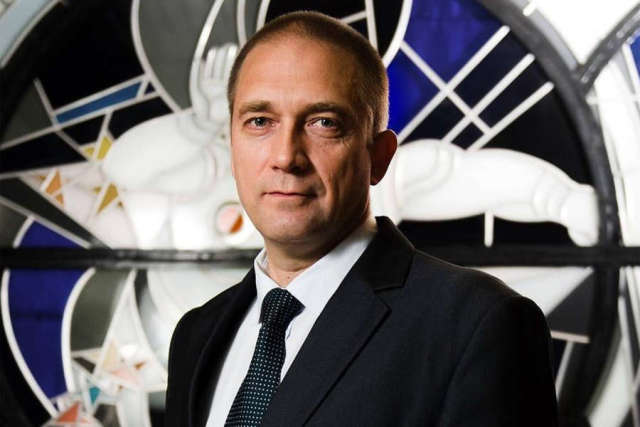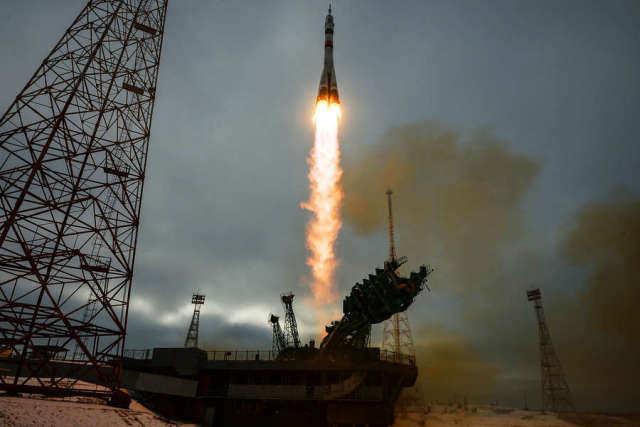Dmitry Baranov, Director of the Progress RCC, told how the plant lives under sanctions
After the introduction of US and EU sanctions against Russian space enterprises, the head of Roscosmos, Dmitry Rogozin, promised to focus the resources released due to the curtailment of cooperation on the creation of dual-use and military systems. Among those who fell under the sanctions was the Samara RCC Progress, a manufacturer of Soyuz rockets used, among other things, for launches to the ISS. Have Western sanctions affected the production of the Soyuz, whether foreign equipment is used in their production, why production of the Rysachok aircraft was stopped in Samara and whether children's sleds are still being produced, "Gazeta.Ru" said Dmitry Baranov, General Director of the Progress RCC.
- Are we talking about a partial reorientation of production to the Progress RCC under the sanctions?
- RCC "Progress" in the conditions of international sanctions works according to previously agreed plans according to approved schedules. The company has determined the load on the main projects of the State Corporation "Roscosmos". There are no plans to reorient production at the moment.
- Are there plans to expand the range of non-space goods? At the expense of what?

Baranov Dmitry Alexandrovich
Image source: Press service of JSC "RCC "Progress"
- The issue of expanding the nomenclature at the Progress RCC is not acute, since the production and design departments have a full load. In the future, we are ready to consider such an opportunity in the interests of the company.
- Then what happens to the "Trotter" aircraft, the commander's boat, the sledges produced at the RCC, and what is planned to produce new?
- As for children's sleds, this product has been discontinued. We have been selling these products only from the warehouse for quite a long period of time. The production of the commander's boat is carried out by specialists of the RCC "Progress" under contracts with the Ministry of Defense of the Russian Federation. The production of this equipment is possible to order. As for the "Trotter", this aircraft was presented at the international aviation and Space salon "MAKS" in 2011 and subsequent years, and has always aroused great interest.
- The introduction of sanctions by the West against space enterprises, including the Progress RCC, was the reason for the revision of cooperation under the ISS program. How exactly did the production of space technology, including those related to the implementation of the ISS program, depend on the United States and Europe?
- Western sanctions cannot affect the work of the Progress RCC in any way, including within the framework of the International Space Station (ISS) project. The production of launch vehicles and remote sensing spacecraft does not depend on the USA and European countries in any way.
- Does the company use Western equipment and what kind?
- Several thousand pieces of equipment, including foreign production, are involved at the Progress production site. The equipment was purchased at different times for the implementation of various projects to create space technology. Many machines have been upgraded.
- It is known that such processing tools as cutters, drills and reamers were partially purchased abroad, in Europe, is there now an opportunity to buy it in Russia?
- Yes, there is such a possibility. In the Progress RCC, this issue has been largely resolved due to the presence of its own tool production at the enterprise.
-Last year, funding for the development of a superheavy rocket was stopped, at what stage did the development stop?
- This issue is the responsibility of the State Corporation "Roscosmos".
- Does the creation of the Soyuz-5 rocket fit into the schedule for the first launch in 2023?
- All work on the production of the Soyuz-5 rocket is on schedule, the specialists of the Progress RCC are taking the necessary actions to comply with the obligations.
- An important achievement was the use of friction welding with mixing in the Soyuz-5 tanks. This is a new technology for Russia, is there enough experience of workers?
- In our country, friction welding with mixing for space production is a new technology. Its implementation is carried out within the framework of the project to create a promising Soyuz-5 launch vehicle. The equipment performing automatic friction welding with mixing is manufactured by the Russian company CJSC Cheboksary Enterprise "Sespel". For Soyuz-5, by order of the Progress RCC, Sespel manufactured three installations and equipment for friction welding with mixing of aluminum alloy parts. The equipment provides welding of plates with a thickness of about 30 mm. The use of this technological process will ensure the welding of the required thicknesses in one pass, with high quality and characteristics and will increase the strength of the tanks of the new PH. Specialists of the RCC "Progress" involved in ensuring the implementation of the technology are trained at the manufacturer.
- Why then were the first Soyuz-5 tanks sent for testing made not with the help of a new, but conventional, argon-arc welding? Will the first flight samples be made using the new technology?
- The tanks of the first Soyuz-5 flight launch vehicle will be made using a new technology of friction welding with mixing. The tanks of the new launch vehicle sent for testing were made by argon-arc welding to ensure the schedule for the creation of a new promising Soyuz-5 launch vehicle.
- The Soyuz-MS10 accident in October 2018. Did she have a surname, a first name, a position? What was the reason, and who was punished? Is it true that the collectors have been working with breast cameras ever since?
- The accident of the Soyuz-FG launch vehicle in October 2018 occurred as a result of an error made when assembling the launch vehicle units into a package. After the work of the emergency commission of the Roscosmos State Corporation, technological and organizational decisions were made that excluded such cases in the future. Video and photo documentation is carried out in the assembly shops, which additionally ensures high-quality assembly of rocket and space technology.
- Since that accident, Roscosmos has demonstrated a record zero accident rate during launches - 3.5 years. What measures do you associate this with?
- The Soyuz and Soyuz-2 launch vehicles are internationally recognized as the most reliable launch vehicles in the world, the reliability coefficient, depending on the modification, is determined to be about 0.985. Highly qualified specialists work at all stages of the creation of the Soyuz-2 launch vehicle, and triple control of each operation ensures a high degree of reliability during assembly. In addition, many automatic systems have been introduced into rocket digital technology at present, which provide additional verification of the product's readiness for launch.
Pavel Kotlyar

